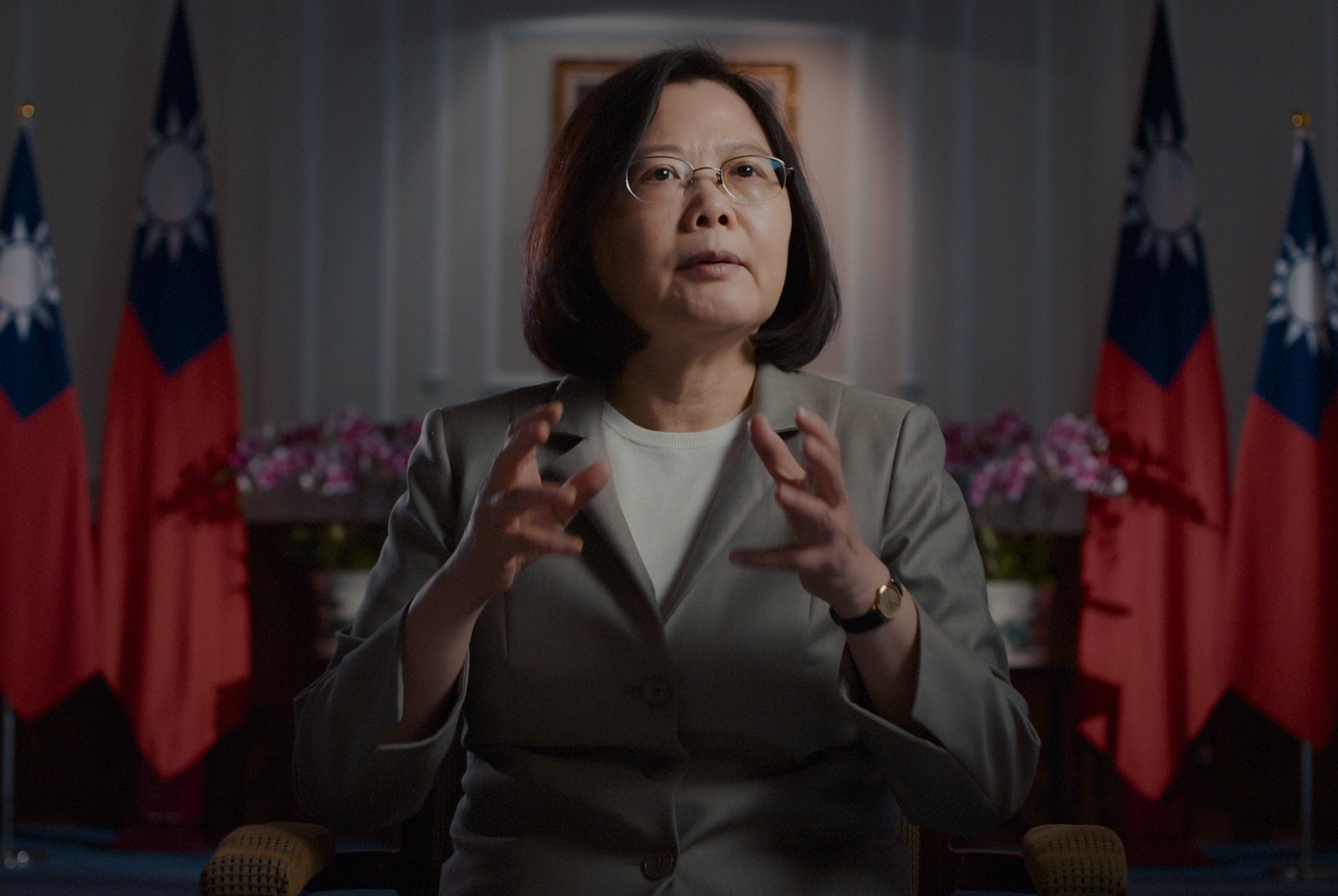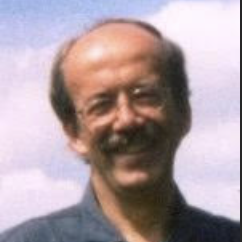Invisible Nation documentary is making Taiwan more visible

Source:Laura Hudock
In the op-ed, through Invisible Nation director Vanessa Hope's lens, authors Shawna Yang Ryan and Gerrit van der Wees underscore how the film illuminates President Tsai Ing-wen's leadership amid challenges from China and domestic issues, presenting a poised and pragmatic leader steering Taiwan toward progress.
Views
Invisible Nation documentary is making Taiwan more visible
By Shawna Yang Ryan, Gerrit van der Weesweb only
During the past weeks, a new documentary about Taiwan has been making the rounds at various film festivals in the United States and Europe, including the International Documentary Film Festival Amsterdam on November 14-18, 2023. Invisible Nation is the work of Vanessa Hope, who built up the film around the every-day life of President Tsai Ing-wen, in the process creating a fascinating picture of how the low-key President is ably leading Taiwan towards a better future.
The documentary received high praise and full houses in five screenings at the 36th edition of the Amsterdam International Documentary Film Festival, which is the world’s largest film festival and documentary event, where some 200 documentaries are screened over a period of 11 days. Taiwan’s Representative to the Netherlands, Ms. Hsin Hsin Chen, also attended the premiere event.
The documentary portrays vividly how the President as the head of a democratic government has to deal with the perpetual threats from the Chinese side and a host of domestic issues. But in spite of the pressure, President Tsai maintains a calm demeanor, a good sense of humor, and logically goes about resolving the issues facing her. Invisible Nation represents a major contribution to the understanding of Taiwan today.
The documentary presents a balanced picture of domestic politics in Taiwan, extensively interviewing President Tsai’s predecessor, former President Ma Ying-jeou of the KMT party, who during his term (2008-2016) attempted – but failed – to push Taiwan closer to China through a host of economic agreements, which were seen by many in Taiwan as a slippery slope towards unification.
The documentary also does a good job in explaining the complex history of Taiwan, going back to the Dutch colonial period (1624-1662), the first time at least part of the island was under centralized administrative rule. It leads us through the Qing Dynasty – also a colonial rule by outsiders – through the Japanese period (1895-1945) to modern history, the repressive rule by the Chinese who came with Chiang Kai-shek after 1945.
Taiwan’s all-important transition to democracy in the 1980s and early 1990s is seen through the eyes of Ms. Chen Chu, a prominent fighter for democracy who was imprisoned for some six years in the 1980s, but who subsequently became a government minister, and presently serves as chairperson of the National Human Rights Commission.
Because Invisible Nation highlights Taiwan’s success story as a democracy, one can of course expect criticism from those who cling to the perspectives of the old and repressive Kuomintang, as well as those who adhere to the thinking of the CCP regime in Beijing, which doesn’t like this example of democracy on its doorstep, and which is intent on wiping out Taiwan’s democracy through their concept of “unification” – which in practice will look like Tibet, East Turkestan, Hong Kong or even worse. Not a very attractive proposition for the people of Taiwan, who – as this documentary shows – worked very hard to achieve their democracy.
In response to the common historical misunderstandings that Taiwan’s detractors cling to, we offer a series of facts to help guide one’s viewing of the film.
People hold the misconception that Taiwan was “always” a part of China. The documentary portrays Taiwan’s history beginning with the Dutch colonization of the island and states that the only time one government controlled both China and all of Taiwan was from 1945 to 1949. The fact is that before the Dutch arrived in Taiwan in 1624 there were no signs of any administrative rule by any Chinese emperor whatsoever. And as far as the Qing Dynasty is concerned, they were considered by the Taiwanese to be foreign intruders from the North. The Taiwanese for sure didn’t consider themselves “part of China”, as shown by the fact that during the some 200 years of Qing rule, there were more that 100 recorded uprisings: “Every three years an uprising, every five years a rebellion.”
Another common misunderstanding relates to the 1943 Cairo Declaration and the 1945 Potsdam Declaration. It was only after the Cairo Declaration that CCP leaders began to retroactively claim Taiwan had been a part of China. Before that time, both the CCP -- and KMT – had accepted that it was under Japanese rule, and even advocated it should be independent … from Japan of course.
After World War II, the Allied Forces under General Douglas MacArthur put Taiwan under administrative control of Chiang Kai-shek’s regime, but this was a temporary measure until a more permanent solution could be found. US documents show that during the 1950s, 1960s and 1970s the US did not recognize Chinese sovereignty over Taiwan, declaring – in accordance with the outcome of the 1951-52 San Francisco Peace Conference -- that Taiwan’s status was “undetermined,” and needed to be determined peacefully.
This “peaceful determination” theme also found its way into the Taiwan Relations Act and Reagan's Six Assurances, while in the Three Communiques, the US delicately “acknowledged” – but did not formally recognize or agree to -- the Chinese position that “there is but one China and Taiwan is part of China.” Diplomatic language for “I hear you, but that is not my position”. The PRC government on its part has totally reneged on its promises of peaceful resolution.
During the visit of then House Speaker Nancy Pelosi to Taiwan in August 2022, documented in the film, Mrs. Pelosi emphasized “America’s unwavering commitment to supporting Taiwan’s vibrant democracy. US’ solidarity with the 23 million people of Taiwan is more important today than ever, as the world faces a choice between autocracy and democracy.”
Coming from one of the highest US elected officials that was quite a compliment for Taiwan. Critics of the visit stand on the wrong side of history. And by the way: those military exercises by the PLA obviously showed how afraid they are of a 82-year-old who is about to retire.
To reiterate the words of Speaker Pelosi, US solidarity with Taiwan is more important today than ever, as the world faces a choice between autocracy and democracy. China apologists have chosen autocracy. The Taiwanese people will stay firmly on the democratic side. Or in the words of President Tsai at the very end of Invisible Nation: “We only have one choice, and that is that every Taiwanese has to go out, to every corner of the world, and make the world see Taiwan.”
(This piece reflects the author's opinion, and does not represent the opinion of CommonWealth Magazine.)
About the author:

Shawna Yang Ryan is the author of “Water Ghosts” and “Green Island” and teaches in the creative writing program at the University of Hawai’i at Manoa.

Gerrit van der Wees is a former Dutch diplomat who teaches the history of Taiwan at George Mason University in Fairfax, Virginia.
Have you read?






